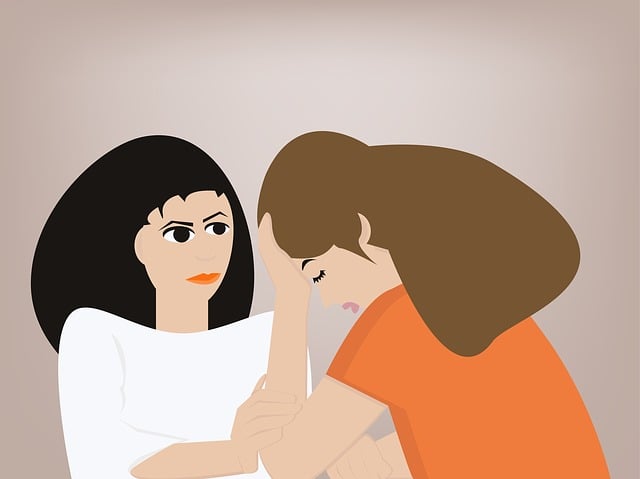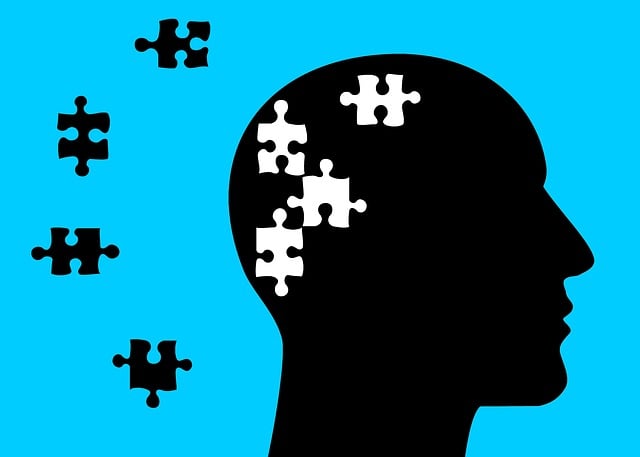Aurora Bilingual Therapy offers a comprehensive, personalized approach to mental health care, addressing language and cultural barriers through patient-centered therapy in native languages. They combine clinical expertise with emotional sensitivity, stigma reduction, and self-care workshops to empower individuals and their support networks. By integrating stress management techniques, risk mitigation planning, community outreach, and holistic well-being practices, Aurora revolutionizes mental health navigation, fostering effective communication and recovery for all.
Mental illness diagnosis and treatment can be overwhelming. This comprehensive guide aims to empower patients and caregivers by offering a detailed look at navigating mental health. We explore various aspects, from understanding diagnoses with Aurora Bilingual Therapy’s personalized plans to finding suitable treatment options, building support networks, and prioritizing self-care. By integrating these strategies, individuals can take charge of their mental wellbeing and embark on a path to holistic recovery.
- Understanding Mental Health Diagnoses: A Comprehensive Guide for Patients and Caregivers
- The Role of Aurora Bilingual Therapy in Personalized Treatment Plans
- Navigating Treatment Options: Medication, Therapy, and Alternative Approaches
- Building a Supportive Network: Family, Friends, and Professional Resources
- Self-Care Strategies for Mental Wellbeing: A Holistic Approach to Recovery
Understanding Mental Health Diagnoses: A Comprehensive Guide for Patients and Caregivers

Understanding Mental Health Diagnoses: A Comprehensive Guide for Patients and Caregivers
Mental health diagnoses can seem like a complex labyrinth, but with the right resources, navigating this landscape becomes more manageable. Aurora Bilingual Therapy offers a beacon of hope through its patient-centered approach, ensuring everyone involved understands the unique aspects of each individual’s mental health journey. We provide clear explanations of various conditions, empowering patients and caregivers to actively participate in treatment decisions. By demystifying diagnoses, we facilitate effective communication between professionals and loved ones, fostering an environment conducive to emotional healing processes.
Our comprehensive guide delves into not only the clinical aspects but also emphasizes the importance of support systems. We believe that understanding mental wellness is a crucial step towards its coaching programs development. Through our stress management workshops organization, we equip individuals with valuable tools for coping mechanisms and self-care practices. By combining professional knowledge with emotional sensitivity, Aurora Bilingual Therapy aims to revolutionize mental health navigation, making it accessible and less intimidating for all.
The Role of Aurora Bilingual Therapy in Personalized Treatment Plans

Aurora Bilingual Therapy plays a pivotal role in transforming mental health care by offering personalized treatment plans that cater to individuals’ unique linguistic and cultural backgrounds. Many people facing mental illness struggle with communication barriers, which can hinder effective treatment. This therapy bridges these gaps, ensuring that every patient receives supportive, culturally sensitive care. By providing therapy in their native language, Aurora Bilingual Therapy facilitates deeper understanding and engagement, allowing for more accurate diagnoses and tailored interventions.
Beyond addressing language barriers, Aurora Bilingual Therapy integrates mental illness stigma reduction efforts into its approach. Through innovative programs and self-esteem improvement workshops, patients are empowered to challenge societal perceptions while cultivating resilience. Additionally, the organization hosts stress management workshops designed to equip individuals with coping strategies, fostering a sense of agency in managing their mental well-being.
Navigating Treatment Options: Medication, Therapy, and Alternative Approaches

Navigating treatment options can be a daunting task for anyone facing mental illness. It’s essential to explore a multifaceted approach that combines various strategies tailored to individual needs. Medication, while often a first-line defense, is not a one-size-fits-all solution. Therapies like Aurora Bilingual Therapy offer specialized support, catering to diverse cultural backgrounds and communication preferences. This holistic method enhances the effectiveness of treatment by addressing linguistic barriers and promoting culturally sensitive care.
Beyond traditional medication and therapy, there are alternative approaches worth considering. Implementing risk management planning for mental health professionals can foster a safer environment for both clients and practitioners. Community outreach program implementation expands access to care, especially in underserved areas. These initiatives, coupled with confidence-boosting strategies, create a supportive ecosystem that encourages recovery and empowers individuals to take control of their mental health journey.
Building a Supportive Network: Family, Friends, and Professional Resources

Building a supportive network is an integral part of navigating mental illness. Family and friends play a crucial role in providing emotional support, understanding, and encouragement throughout the diagnosis and treatment process. They can offer a listening ear, provide practical assistance, and help individuals manage their symptoms by engaging in communication strategies that foster open dialogue. Encouraging loved ones to attend therapy sessions or support groups can also create a sense of community and reduce feelings of isolation.
Professional resources, such as therapists and counselors from institutions like Aurora Bilingual Therapy, are essential for comprehensive mental health care. These professionals employ techniques like emotional intelligence to help individuals process their emotions, develop coping mechanisms, and enhance overall well-being. Furthermore, they can provide specialized treatment plans tailored to specific conditions, empowering patients with tools to improve their mental health. By combining family support and professional guidance, individuals can build resilience, gain a confidence boost, and effectively manage their mental illness.
Self-Care Strategies for Mental Wellbeing: A Holistic Approach to Recovery

In the journey towards mental wellbeing, self-care plays a pivotal role, offering a holistic approach to recovery that goes beyond traditional therapy. Aurora Bilingual Therapy recognizes this and emphasizes the importance of empowering individuals with effective coping skills. By integrating self-care strategies into daily routines, one can create a protective shield against mental health challenges. This involves nurturing both physical and emotional needs, such as regular exercise, mindfulness practices, and maintaining a balanced diet, which form the foundation for mental stability.
Furthermore, Aurora Bilingual Therapy designs mental health education programs that educate individuals on recognizing and managing their symptoms. These programs not only foster self-awareness but also equip participants with valuable coping skills development strategies. Conflict resolution techniques, often included in these educational initiatives, teach individuals how to navigate interpersonal interactions with resilience and emotional intelligence, thereby enhancing overall mental wellbeing.
Navigating mental illness is a complex journey, but with the right tools and support, it can lead to significant improvements. By understanding mental health diagnoses through comprehensive guides like “Understanding Mental Health Diagnoses,” individuals and caregivers gain valuable insights. Therapies such as Aurora Bilingual Therapy offer personalized treatment plans, addressing unique needs. Exploring various treatment options, including medication, therapy, and alternatives, empowers patients to make informed choices. Building a robust support network involves leveraging family, friends, and professional resources, while self-care strategies promote holistic recovery. This comprehensive approach ensures individuals with mental health challenges can find their path to wellness.














